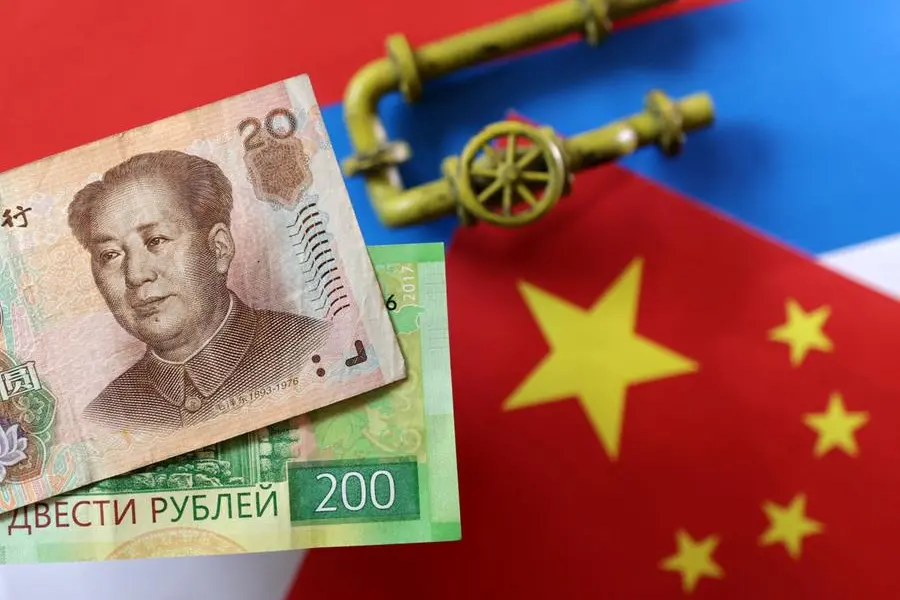PHOTO
MOSCOW - Russia's largest bourse said on Wednesday that yuan-rouble trading volumes would outpace dollar-rouble trading next year, as Russia strengthens its economic ties with China in the face of sweeping Western sanctions.
Despite the added complexity of doing business in yuan, Russian aluminium producer Rusal said it saw great promise in the nascent Russian domestic market for yuan-denominated bonds.
"We can raise yuan funds here at lower rates than firms with a comparable rating in mainland China," Alexey Grenkov, Rusal's director of corporate financing, told a finance conference, adding that 20% of Rusal's loans were already in yuan.
Moscow Exchange said in a presentation that yuan-rouble trading turnover exceeded 6.9 billion roubles ($118 million) in August, 61 times higher than in December 2021, before Russia sent its armed forces into Ukraine.
As Western nations have shunned Russia, it has put emphasis on cooperation with China. The two nations have increased their trade and Russian companies have started issuing debt in yuan.
The Russian central bank said Russia was now the third biggest user of yuan for international settlements after Hong Kong and Britain, traditional offshore centres for the yuan.
LIQUIDITY RESTRICTIONS
However, Andrey Melnikov, deputy director of the Bank of Russia's international cooperation department, said restrictions on yuan liquidity meant that increased "yuanisation" would require "adjustment of currency regulation with the participation of regulators".
China maintains heavy capital controls and a complex system of measures to manage onshore trading of the yuan, which it pegs to the dollar, and to influence offshore yuan activity.
Last year - before the latest sanctions made it problematic for Russia and its firms to use dollars - Russia settled 49% of its trade with China in dollars, 26% in euros, 19% in yuan and just 6% in roubles, according to the Bank of Russia.
This year, as Western clients reduce their purchases of Russian oil and gas, Russia is diverting more of its energy exports, which give it a huge trade surplus, towards China.
President Vladimir Putin said three weeks ago that China would in future pay for half its gas from Russia's Gazprom in roubles and half in yuan.
However, Moscow is facing headwinds in its efforts to cosy up to Beijing.
Alexei Konivetsky of the state-run oil producer Gazprom Neft said that, although the yuan's share of his company's foreign earnings was rising fast, Chinese banks were afraid to do business with it due to secondary sanctions risks.
Melnikov said Russian banks could reduce currency risk by increasing investments in yuan-denominated securities and expanding payments for imports in yuan.
The central bank said it would help Russian banks to contact the People's Bank of China to seek permission for yuan operations and facilitate the opening of mutual correspondent accounts.
(Reporting by Elena Fabrichnaya; Writing by Alexander Marrow; Editing by Kevin Liffey and Alex Richardson)




















